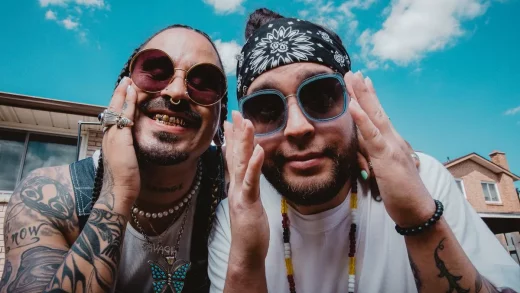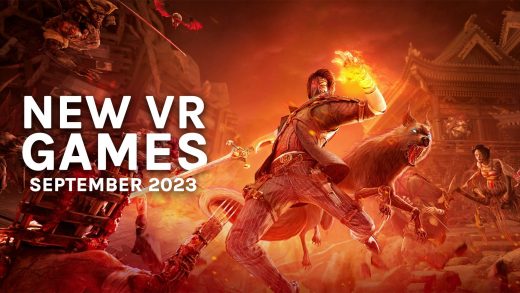:format(webp)/https://www.thestar.com/content/dam/thestar/entertainment/television/2022/06/30/from-ms-marvel-to-dr-bashir-hamed-on-transplant-muslim-storytelling-onscreen-is-evolving/ms_marvel.jpg)
In the series premiere of “Ms. Marvel,” Kamala Khan grabs a piece of naan to eat for breakfast as she walks past her brother, who is praying in Arabic. Later, we see the lead character catch up with her best friend Nakia, who wears a hijab.
And that’s just the first five minutes of the first episode.
The show that stars Markham teenager Iman Vellani as a New Age superhero might have actual superpowers of its own. It is part of a new movement, one that challenges how Muslims are traditionally portrayed in entertainment.
The way Muslims are represented in films, television programs and even in comics has evolved past the stereotypical portrayals of Jasmine in Disney’s “Aladdin” or the perpetrators in crime shows.
“It’s been negative representation because often Muslims are painted as terrorists and the bad guys,” said Sana Amanat, the executive producer of the Disney Plus series. “They’re also portrayed very one-dimensionally.”
Amanat, also a production and development executive at Marvel, is regarded as responsible for a large part of the change, not just by bringing Muslims into the conversation but by making them the focal point of the dialogue.
As a Pakistani-American woman who started at Marvel in 2009, Amanat has been working toward more parity for women and people of colour in a traditionally white male-led space. The “Ms. Marvel” character was created in 2013 and came to life in the series released this month.
“I never thought I would have this role,” Amanat said. “After college, I thought I was going to be a journalist, mostly because I wanted to change perceptions of Muslims in the media and Muslims in the West. It’s sort of wild that, in a weird way, this show is going to do that.”
Amanat said, over time, Marvel has evolved not just in its storytelling but in who is in charge of telling these stories.
“It’s very rare for someone to go from a comic book editor to an executive producer, so it’s a testament to the fact that people have put their faith in me. Hopefully, it’s the beginning of more.”
Perhaps the most revolutionary thing about Amanat’s characterization of Kamala Khan is that she isn’t afraid to modernize the character’s Islamic beliefs, both in the comic and in the series. While her best friend wears a hijab, Khan chooses not to.
“I wanted to show Muslims as regular people. Let’s just have Kamala think about bacon. She just wants to eat bacon. She just wants to figure out if that cheeseburger is halal or not. I think that’s very relatable. Really small everyday things. We don’t have to tackle the politics to just tackle what’s on the breakfast table.”
Serena Rasoul agrees. The founder and director of Muslim Casting, an agency that works to help Muslim actors get hired in TV and movies, said showing Muslims doing things that are normally considered elements of Western culture isn’t sacrificing the religion’s ideals. It’s simply making them more relatable to today’s youth.
“If this was my parents’ generation who are immigrants to this country, then I would say this is catering to the West. But as someone who grew up in this country, those storylines resonate with me. What I like about shows like ‘Ms. Marvel’ and ‘We Are Lady Parts’ is that they’re not just feeding you one view of a Muslim woman. They are showing you all of our different dimensions.”
Pakistani-Canadian actor Hamza Haq stars in “Transplant” on CTV. Currently in production on the show’s third season, the actor believes the prevalence of Muslim actors in Muslim roles is largely due to the contemporary way the characters are being written.
In an interview, he discussed a first-season episode in which his character, Dr. Bashir Hamed, is talking to Dr. Theo Hunter, played by Jim Watson. Hunter says there are different types of Christians, identifying them as “Christmas and Easter Christians, Sunday Christians and everyday all-day Christians.” He asks Bashir if it is the same categorization for Muslims. With no written line in the script for the answer, Haq ad-libbed.
“I literally said, ‘Some days, I pray five times a day and sometimes I don’t pray at all,’” Haq said.
The line received both positive and negative feedback, according to the actor.
“A lot of people talk about that line and the reality of what it means to be a Muslim. I feel like either our community expects us to be absolutely perfect or they think that we’ve walked away completely; that we don’t subscribe to any of our rules, regulations or spirituality because we missed a prayer. Really, it’s both.”
Haq said the line connected with as many people as it did because many found it applicable. He said Muslim actors face many pressures others don’t.
“Ultimately, I can’t represent all of Islam just by myself. I can’t represent every Muslim. And it is far too exhausting to even try. Because that line was truthful to me, it resonated with a lot of people.”
Haq once referred to himself as a “trash representative” of his culture because he accepted demeaning roles, including playing an Iraqi ISIS member and a convenience store clerk, but said he recently had an awakening.
“That’s what I meant about being a trash representative. There was no foundation to why I was doing what I was doing. After ‘The Indian Detective,’ I hit this wall where I just didn’t want to work because of how it was making me feel. And it wasn’t until I started thinking about the stories I wanted to tell and the actor that I wanted to be, that’s when ‘Transplant’ came around, and I thought I could do it justice.”
Rasoul said there is still work to be done, but small steps are being taken. She was part of a team that developed a new onscreen test for Muslim women in TV and film called “From Surviving to Thriving.” A partnership with the Geena Davis Institute and Pillars Fund, it critiques Muslim representation in the arts on a scale from A to F.
Producers of shows and films are asked if they include a Muslim character or storyline, and if that story includes a prominent Muslim woman. The portrayals of Muslim women are then examined to see if the depictions are oppressive, identity-rejecting, monolithic or objectified. Then respondents are asked if there are any nuanced portrayals of the women.
“My favourite criterion that we put in was ‘joy.’ Is she ever shown expressing joy? A lot of times, under-represented communities expressing joy is shown as an act of resistance,” Rasoul said.
“Another one I really like is ‘Muslimah in motion.’ Do we ever see the Muslim woman outside of the home or school? Many times we just see them in domesticated circumstances instead of on vacation jet-skiing where she is fully humanized.”
Amanat, Rasoul and Haq all believe that while progress is being made, there is still work to be done in terms of normalizing Muslim actors in lead roles instead of making these the exception.
“There may be ‘Ms. Marvel,’ but there are still a lot more of these typical, very orientalist and very stereotypical approaches, these ‘Homeland’ kind of depictions,” Rasoul said. “We really have to do a better job of calling that out.”
Haq concurred.
“Ultimately the good outweighs the bad, but sometimes the bad is just louder. Everybody from a marginalized community has benefited from the bravery of the BLM (Black Lives Matter) movement. I personally have felt a tremendous shift in our collective consciousness.”
JOIN THE CONVERSATION



